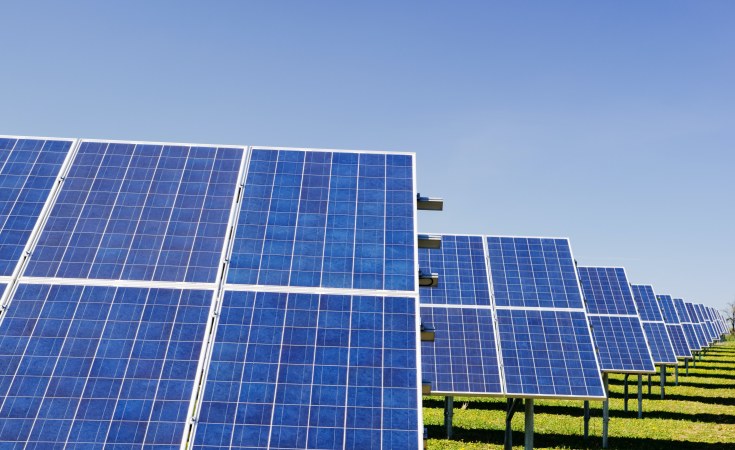The European Union is investing heavily in Africa - pouring half of its global mega budget of €300 billion into projects on the continent. Renewable energy, internet access, transport, vaccines and education are several sectors benefiting from private and public EU funds - an effort that's being supported by the European Investment Bank (EIB). RFI spoke to vice president Ambroise Fayolle about the bank's strategy for Africa.
RFI: Why is the EIB interested in investing in Africa?
AF: Africa remains a priority in terms of what we can achieve outside of Europe. Last year the EIB invested more money in Africa than anywhere else - about 4 billion euros. This accounts for about 40 percent of our investments outside Europe.
Priority sectors include urban mobility, transportation, water, energy - particularly clean and renewable energy - and issues related to economic development.
RFI: How does the EIB finance its operations?
AF: EU member states, including France, are EIB shareholders. We raise funds on the market through borrowing from investors and then finance projects with other partners. There is no taxpayer money involved, but we benefit from the support of Europe, which allows us to borrow under excellent conditions.
RFI: Is the money you raise redirected according to European priorities?
AF: Yes, absolutely. We are a public bank and therefore we finance projects that are of European interest - something that's defined by politicians at the European Council. Anything related to climate change, whether inside or outside of Europe, is a priority.
RFI: Why does Europe finance projects in Africa?
AF: Europe has been funding projects for a long time. Africa is the continent closest to us and unfortunately it has suffered the greatest climate impact, despite having contributed the least to climate change.
There are many reasons for us to be active in Africa, particularly in projects aimed at combating climate hazards.
RFI: What are some flagship projects supported by the EIB?
AF: We finance a project in Côte d'Ivoire that aims to bring the country's cocoa production in line with European standards. This means eliminating cocoa sourced from deforestation and child labour, among other issues.
Cocoa has a considerable impact on Côte d'Ivoire's economy, accounting for a quarter of jobs and a quarter of GDP. It's important for Europe to finance concrete projects, as well as projects that increase the income of residents.
The cocoa project is an example of this. The price paid for sustainable cocoa is higher than for conventional cocoa. It is a way to increase the income of small producers and improve the living conditions of people in the region.
RFI: This support is provided through financing to the Ivorian microfinance group Cofina, is that correct?
AF: We finance Cofina, and Cofina finances agricultural cooperatives - particularly in the sustainable cocoa sector. While we're not a network institution, we are interested in ensuring that our projects benefit the agricultural cooperatives who meet the criteria of our sustainable development loans.
The EIB has loaned Cofina about €10 billion euros for Côte d'Ivoire. A portion also went to Senegal. The distribution of the loan is ongoing, but 1.5 billion CFA francs have already been disbursed to 24 agricultural cooperatives - including 22 in cocoa and two in rubber.
Usually this takes a long time, but we signed just six months ago and already cocoa farmers are benefiting from the income - I find that remarkable.
RFI: Do any other countries have ambitions to develop cocoa, such as Cameroon or Liberia?
AF: Côte d'Ivoire is the world's leading cocoa producer and the leading exporter of cocoa to Europe - so it's of particular interest to us. We're obviously ready to finance cocoa projects elsewhere, as long as the new European rules apply.
RFI: Have any countries reached out to you?
AF: Cofina and the cooperatives reached out to us for both financing and technical assistance. Thanks to the European Union, we've been able to offer that - and especially enable women to play a bigger role in cocoa production.
This interview has been adapted from the original French by Charlotte Cosset and lightly edited for clarity


